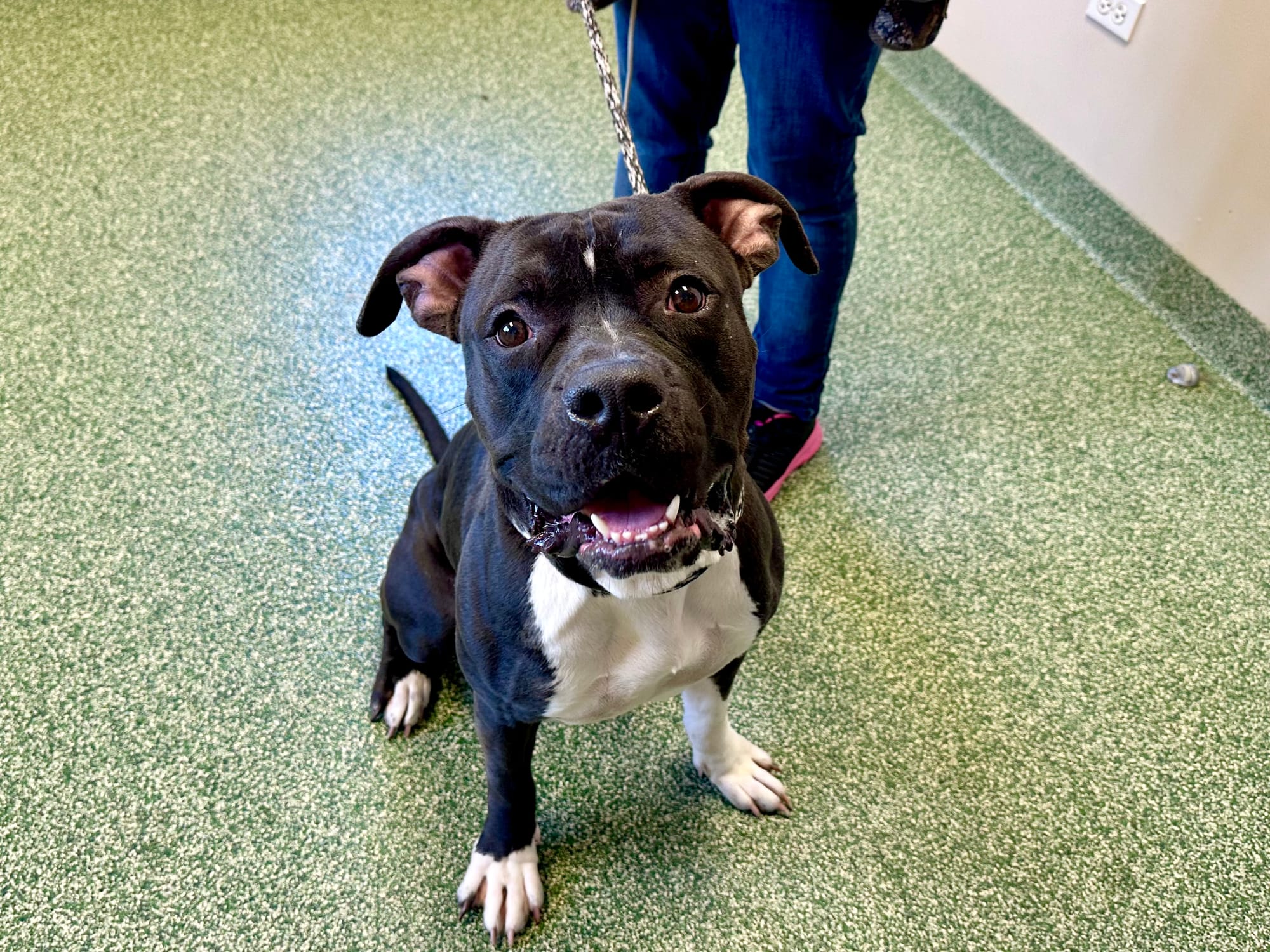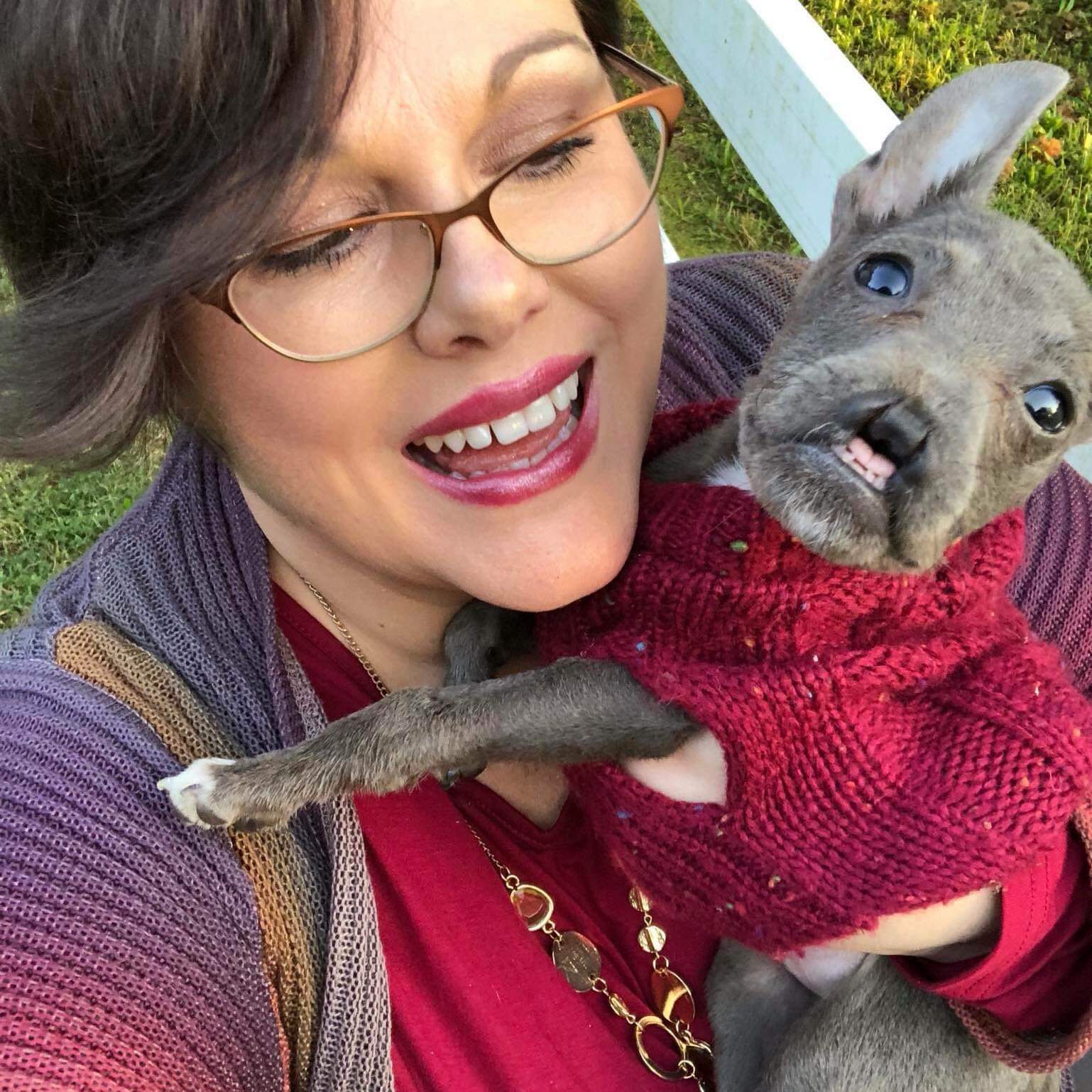Welcome to the ultimate destination for celebrating the unsung heroes of the dog rescue world. At Rescue Spotlight, we're dedicated to highlighting the remarkable journeys of rescue organizations and the incredible individuals behind them.
Whether you seek heartwarming tales of second chances, inspiring stories of rescue missions, or practical insights into the world of dog adoption, you'll find it all here.
Today, we're privileged to interview Brandi Evers, one of the devoted people behind Be My FurEvers Dog Rescue You can find a direct link to their Instagram here.
Here is their story:
What inspired you to start or become involved with this rescue organization?
Evers: I've always had a passion for helping animals. I had a neighbor, when I was young, that would take me to volunteer at an animal shelter and I've always wanted to do more on my own to help. When an opportunity came open with a shelter who didn't have help placing their adult dogs, I decided it was time.
Can you tell us about a particularly memorable rescue mission or adoption story that stands out to you?
Evers: Every adoption story is amazing to me. The rescue world can be a place where you lose faith in humanity, but when you look at the amazing adopters that step up and choose to adopt, each and every one keeps us going and gives us hope that our efforts are helping!
What are some of the biggest challenges you face as a rescue organization, and how do you overcome them?
Evers: There are several challenges in rescue. Primarily the amount of dogs in need is extremely heartbreaking and overwhelming. It really is a nationwide problem that should be addressed - spay/neuter laws and limits on breeding until it's under control - the amount of dogs euthanized every day because there's not enough room is so hard to see. The stress and burnout because of the overwhelming need. Our organization is foster based which means our volunteers bring dogs into their homes and while it is amazing for the dogs burnout is high constantly having new dogs in and out. It's hard on the foster, their personal dogs, children, spouses, etc. Despite these challenges we continue to do what we can and make the little difference we are. It's a drop in the bucket but it's something!
How do you select the dogs that your organization takes in, and what criteria do you use for adoption?
Evers: We work with one specific shelter in Oklahoma. Whatever comes in and is not claimed during their stray hold we will take. The shelter staff is amazing and works hard to help socialize all of the dogs that come in to help with adoptability when they come to Wisconsin. All of our adopters must submit an application that asks questions about their home, schedule, pet ownership history, training styles, what their ideal dog would be. We run background checks and do virtual visits to see where the dogs will spend time. We really want our adoptions to be a good fit for the dog and the family adopting. We try to make sure that the type of dog they are applying for will fit into their family and lifestyle.
In what ways do you work to rehabilitate and socialize dogs before they are adopted?
Evers: This starts in the shelter that we work with. If they feel the dogs are not ready to be adopted yet, they work really hard on socializing the dogs with people and other dogs and cats. They are amazing at helping with this process. Once the dogs are in Wisconsin they are all placed in foster homes where they work on living in a home. Sometimes this means they work sometimes on potty training, socialization with other dogs. Resource guarding tends to be popular among rescue dogs so we will work with the dogs on knowing they have enough and helping to ease their fears of losing food or attention. Crate training and being comfortable in a crate. We have a certified dog trainer and dog behavioralist that foster for us and help fosters with on how to do these things successfully with positive reinforcement techniques.
What role do volunteers play in your organization, and how can people get involved?
Evers: We are a smaller rescue but fosters are always our biggest need for volunteers. We provide food and supplies, medical care, etc. Fosters get to pick which dog they'd like to bring into their home and give love to while they wait to find their FurEvers! We have an application process similar to our adopters to make sure that the dogs will be in good care. And a great support system of other fosters to help guide them through the process.
Can you share some success stories of dogs who were once in your care and have now found loving forever homes?
Evers: Wyatt is a red heeler mix. Heelers can be hard to place based on their specific needs for physical and mental exercise. We turned down a handful of applications that were in apartments or not quite the right fit. He was fostered for several months until his perfect fit came a long. A home in the country, with all sorts of things to do and adopters that saw his amazing potential. They took him through agility training and love his quirky energetic ways. Itty came in to the shelter heartworm positive. A local business held a fundraiser for us that covered the cost of a heartworm treatment. At the time we had 5 dogs waiting for treatment. We let the business owners pick the dog they wanted to sponsor. They picked Itty and decided from his picture that sponsoring wasn't enough. They also wanted to adopt him! Itty got to skip foster life and went straight to his family. Sprout's mom came in to the shelter pregnant and 3 weeks later gave birth to Sprout and her 8 siblings. They stayed in the shelter until they had enough shots to make their way to Wisconsin. Sprout watched her 8 siblings and several other foster siblings come and go and get their turn at furever. Finally, after 4 months of waiting her FurEver found her. They had searched the internet for months looking for the perfect puppy for their family and Sprout was the one. She is so loved and fits in so well. The wait was worth it!
How does your organization collaborate with other rescues, shelters, or animal welfare organizations?
Evers: We partner with a specific shelter in Oklahoma, which is where 95% of our adoptable dogs come from. Sometimes we also help out with a rescue network in Oklahoma as well.
What initiatives or programs does your rescue have in place to promote responsible pet ownership and prevent pet homelessness?
Evers: After our adopters are approved we send each one a questionnaire with some basic dog training tidbits, based off of reasons we've seen dogs returned to rescues in the past, and questions about the use of aversive training methods (shock collars/prong collars, etc). The adopters are able to say they agree with our information, disagree and why, or request more information. We use this tool as a way to educate our adopters on positive reinforcement training methods. We also cover the microchip registration fee for our adopters so that all microchips are automatically registered upon adoption. I had seen so many unregistered microchips because adopters forgot or didn't want to pay the fee on top of an adoption fee, so we decided to cover it to make sure it was taken care of for our adopters. We work to find a lot of adult dogs homes, but have several puppies that come through the rescue too. We are passionate about letting adopters decide with their vet when the right time to spay or neuter is. We follow-up to make sure they have a plan in place and provide options of using our partner veterinarians or we reimburse a portion of the procedure if done with their personal vet. We've partnered with a local organization that raises funds for spay and neuter and promoted donations for them as well. Similar to other rescues we have a clause in our contract that if adopters are unwilling or unable to continue caring for the dog they adopt through the duration of it's life they need to contact us first so we can help find a suitable new home for the dog.
Looking ahead, what are your organization's goals and aspirations for the future?
Evers: Be My FurEvers goal is to put ourselves out of business. It would be fabulous if rescues weren't needed in the future, because that would mean there weren't dogs in crisis. But we really are looking to just keep helping clean up our little corner of the world. We enjoy making the small difference that we are and plan to continue to help find dogs their FurEvers.






